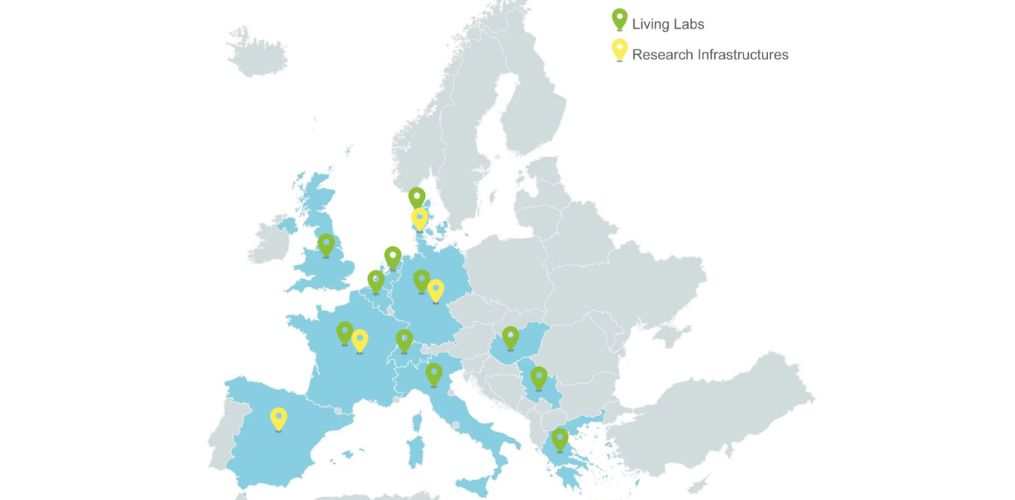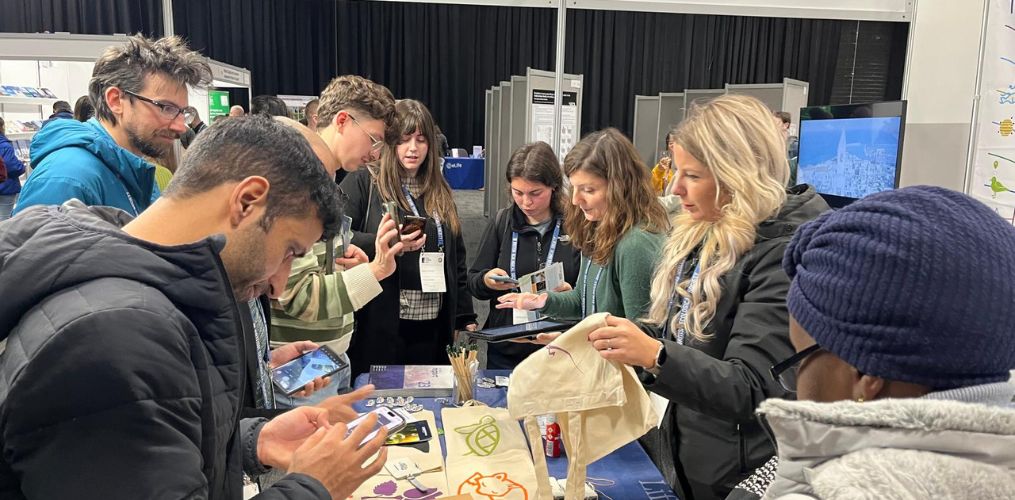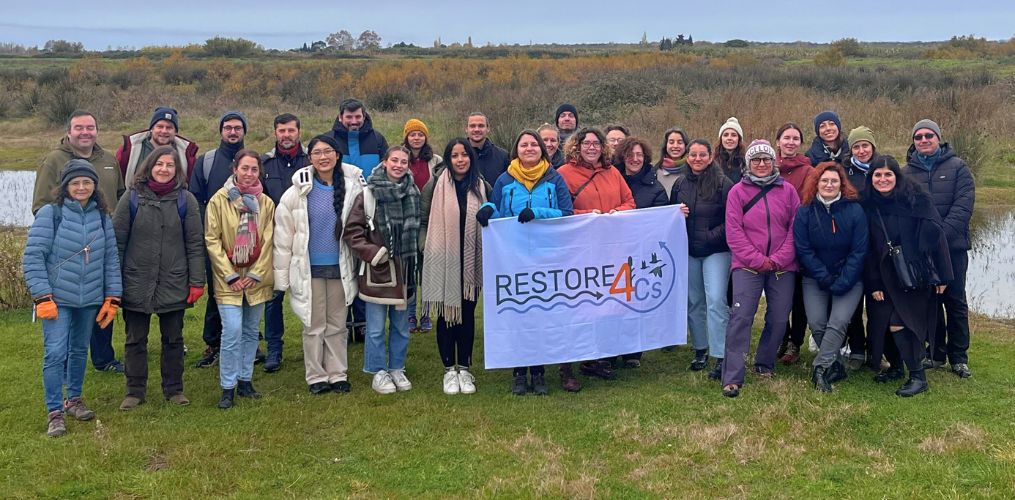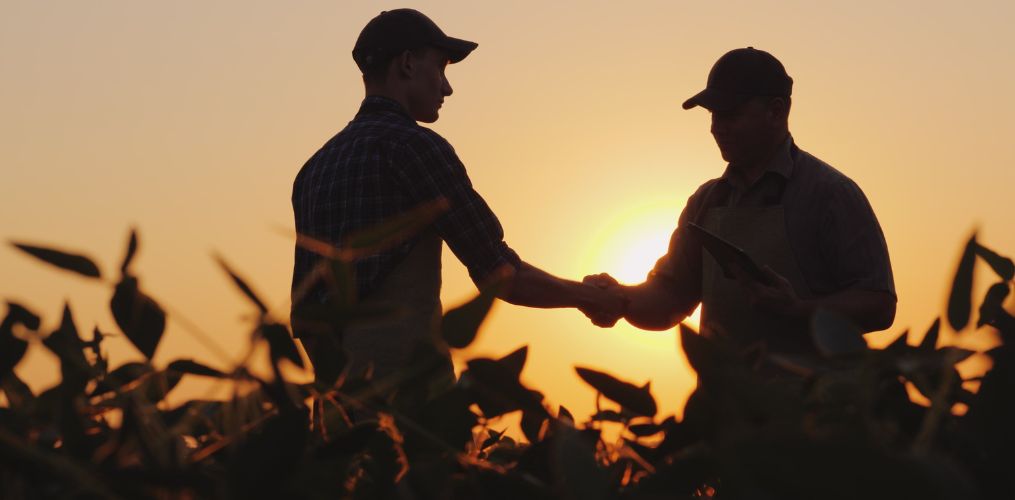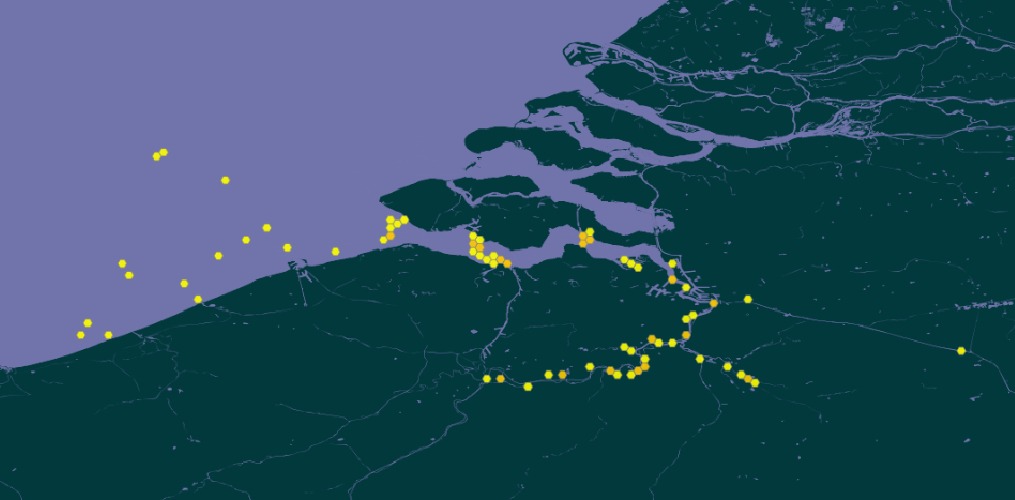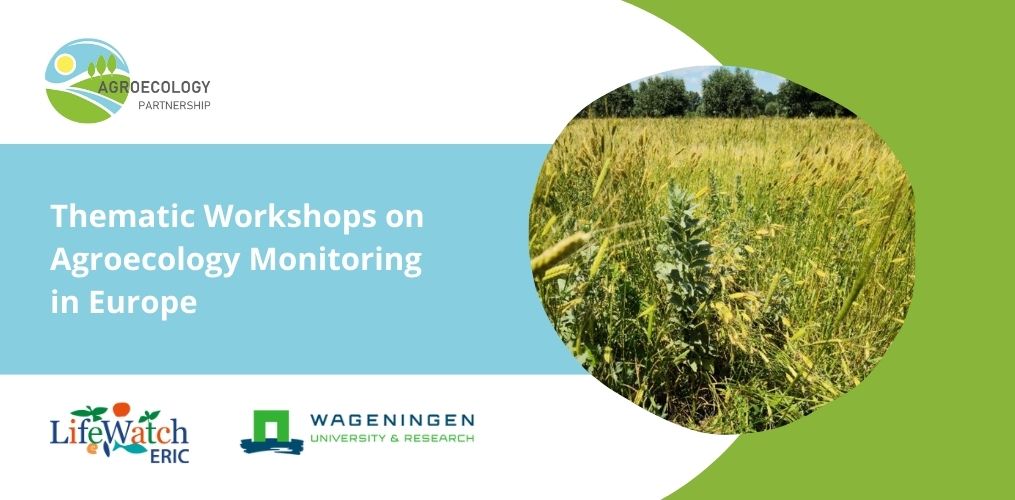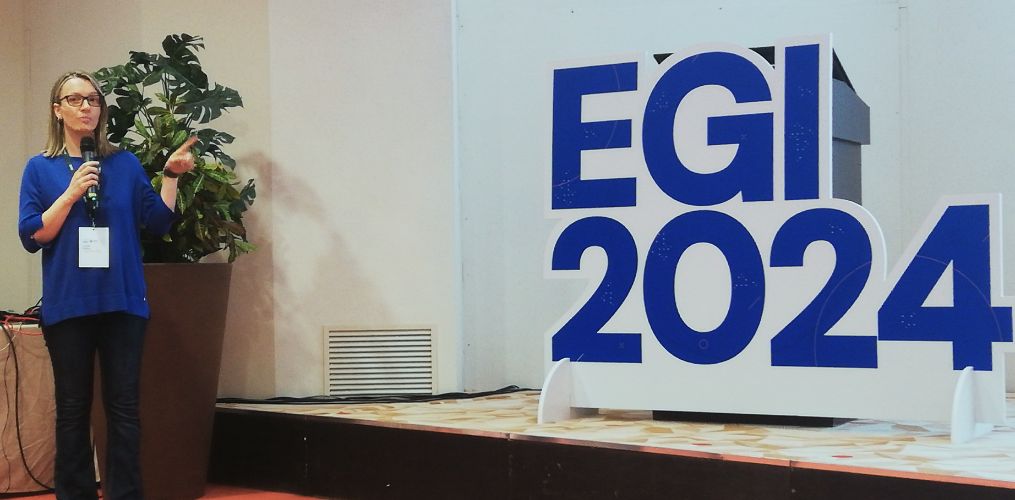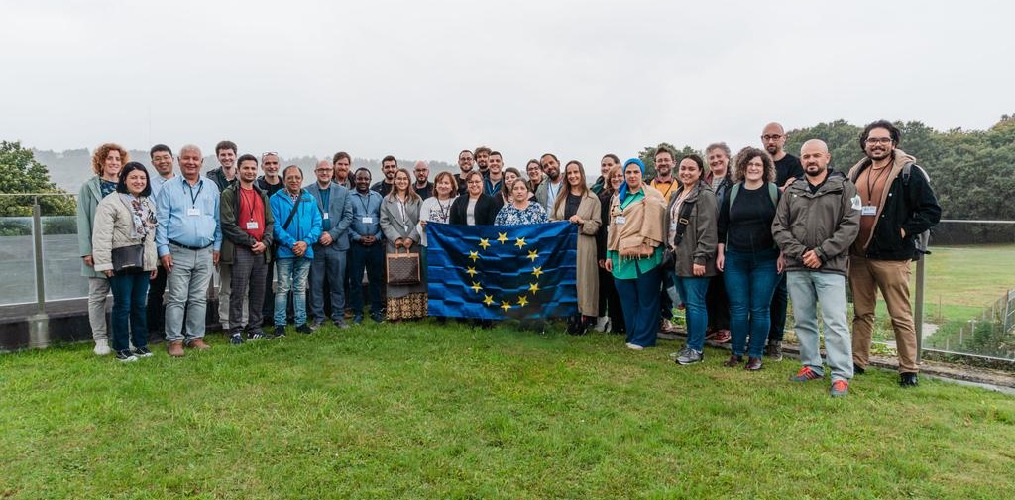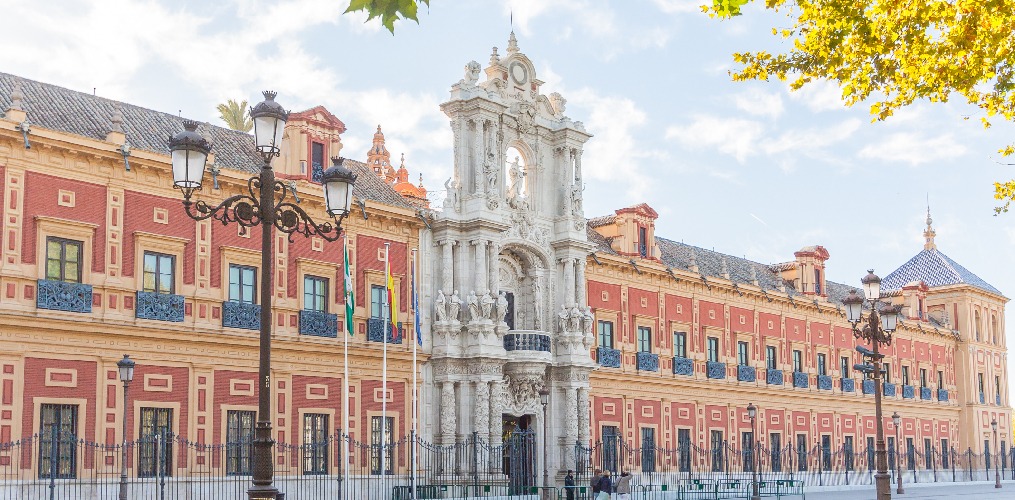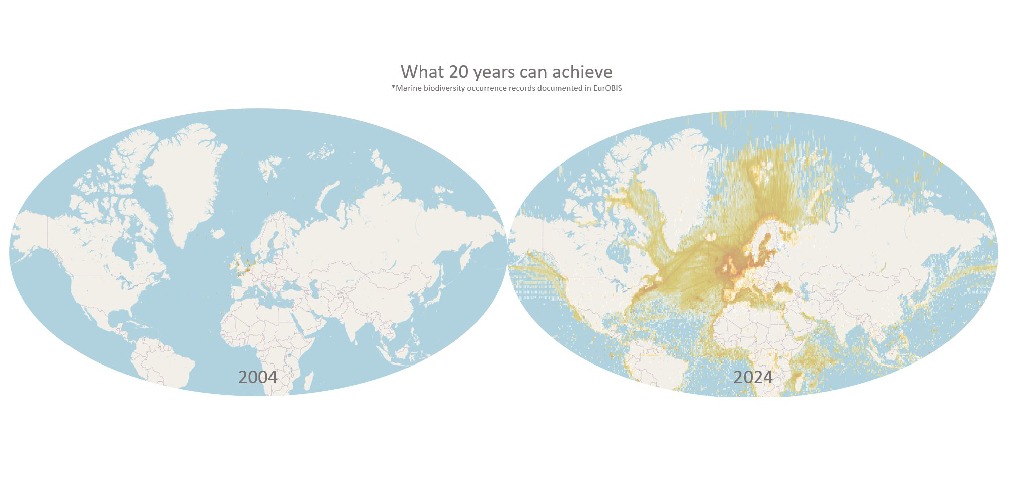LifeWatch ERIC participated in the EGI Conference 2024, held in Lecce from September 30 to October 4. Co-hosted by EGI and CMCC, the conference took place at the Hilton Garden Inn, located in the same city as our Service Centre. This conference provided an ideal platform for our team to showcase innovative solutions that apply disruptive technologies – such as AI and Blockchain – to ecological research.
LifeWatch ERIC and EGI share a mission to advance scientific understanding across Europe. The collaboration between these two organisations has been consolidated over time through several European Projects. Two of these, EOSC Beyond (https://www.eosc-beyond.eu/) and ENVRI-Hub NEXT (https://www.egi.eu/project/envri-hub-next/), held their annual consortium meetings during the conference.
Our team participated with a dedicated booth, along with demonstrations and presentations. Sara Montinaro and Cristina Mancarella (LifeWatch ERIC Service Centre, Lecce) staffed the exhibition booth throughout the conference, introducing participants to our e-Science infrastructure for biodiversity and ecosystem research. Other members of our Common Facilities offered presentations on the Metadata Catalogue, LifeBlock and NaaVRE: a great chance to explore new opportunities for collaboration. Below is a summary of these presentations.
NaaVRE (Notebook-as-a-Virtual Research Environment)
Zhiming Zhao (VLIC Technical Manager) and Gabriel Pelouze, (Virtual Research Environment Developer) from our Virtual Laboratory & Innovations Centre in Amsterdam introduced the NaaVRE platform. NaaVRE supports researchers in creating digital twins and customised scientific workflows. Their presentations addressed two perspectives: digital twin development, and the research data lifecycle.
The challenge behind this platform is to combine the strengths of Computational Notebooks (widely used, interactive, great for developing models), and Virtual Research Environments (great for sharing models in a more mature stage).
Zhiming Zhao provided an overview of the architecture and core functionalities (https://indico.egi.eu/event/6441/contributions/19668/), like the possibility to containerise notebook cells into functional blocks, organise them into workflows, and share them easily. This system facilitates the reuse of data, models, and computational resources, making it easier for researchers to develop digital twins and complex ecological models. The platform has been tested in several use cases, including ecosystem structure analysis from LiDAR data, radar-based bird migration monitoring, and the Dutch NWO LTER-LIFE project, demonstrating NaaVRE’s potential for supporting diverse scientific communities.
Gabriel Pelouze showed some practical applications of NaaVRE in real-world data-centric research scenarios, (https://indico.egi.eu/event/6441/contributions/19316/). In this intricate lifecycle, the possibility of customising the NaaVRE for specific scientific tasks can be very advantageous. He presented case studies where NaaVRE was used to monitor phytoplankton species and analyse ecological systems, emphasising its utility in building tailored VREs for ecosystem research. Moreover, NaaVRE’s possible integration with cloud infrastructures enables cost-effective and scalable research, by providing flexible access to computational resources.
LifeWatch ERIC Metadata Catalogue
Data and Service Architect Lucia Vaira (Service Centre, Lecce, pictured), introduced the LifeWatch ERIC Metadata Catalogue (https://indico.egi.eu/event/6441/contributions/19338/): a centralised platform designed to improve the discoverability and accessibility of biodiversity data and services. The Metadata Catalogue addresses key challenges in the field, such as data fragmentation, heterogeneity, and inconsistencies in metadata.
The catalogue, built on GeoNetwork technology, offers researchers a user-friendly interface to access datasets, improve their FAIRness, and promote a unified approach to biodiversity data management.
New features are constantly improving this service, such as the integration of metadata FAIRness evaluation tools and templates based on standardised profiles like EML 2.2.0. and ISO 19139/119. These features support data provenance and DOI assignment, which are essential for reliable data management.
LifeBlock
Julio Paneque (Intelligent Systems, Robotics, Unmanned Aerial Vehicles & HAPS Expert, ICT-Core, Spain), presented LifeBlock (https://indico.egi.eu/event/6441/contributions/19619/), a blockchain-based solution for researchers, policy makers, and developers to address the need for data integration and answer important questions about biodiversity. LifeBlock leverages semantic technologies and AI to support ecological and biodiversity research by federating data from diverse sources and creating a unified environment that supports advanced data discovery and analysis.
Through the use of knowledge graphs to enrich data with semantic context, it facilitates complex queries, enabling researchers to draw meaningful connections across datasets. LifeBlock’s integration of AI enhances its data management capabilities by automating tasks like metadata generation and data quality assessment, which streamline research processes. Additionally, the platform ensures proper attribution and provenance tracking, fostering trust and transparency within the scientific community.
For more information about these tools, you can visit the following links:
LifeBlock | https://lifeblock.eu/login
Metadata Catalogue | https://metadatacatalogue.lifewatch.eu
NaaVRE | https://naavre.lifewatch.dev/vreapp
